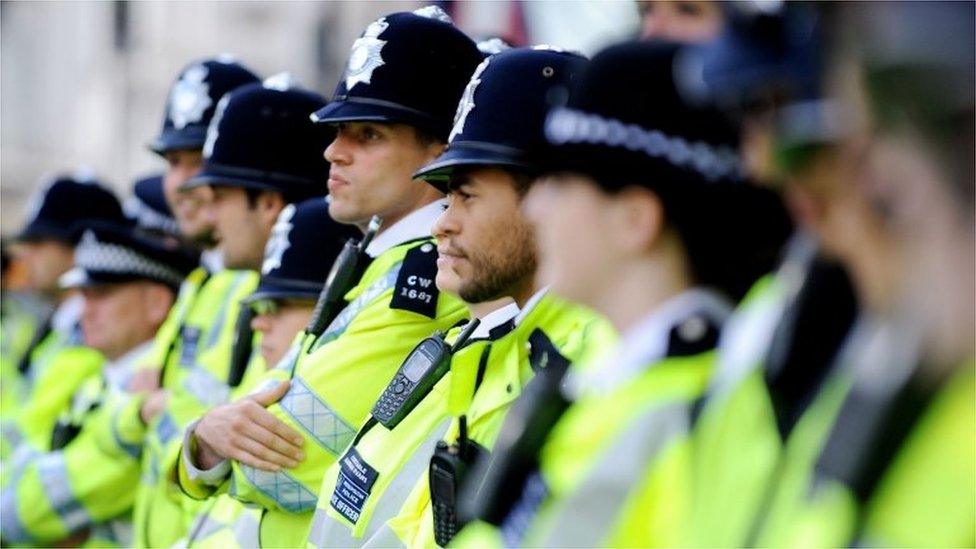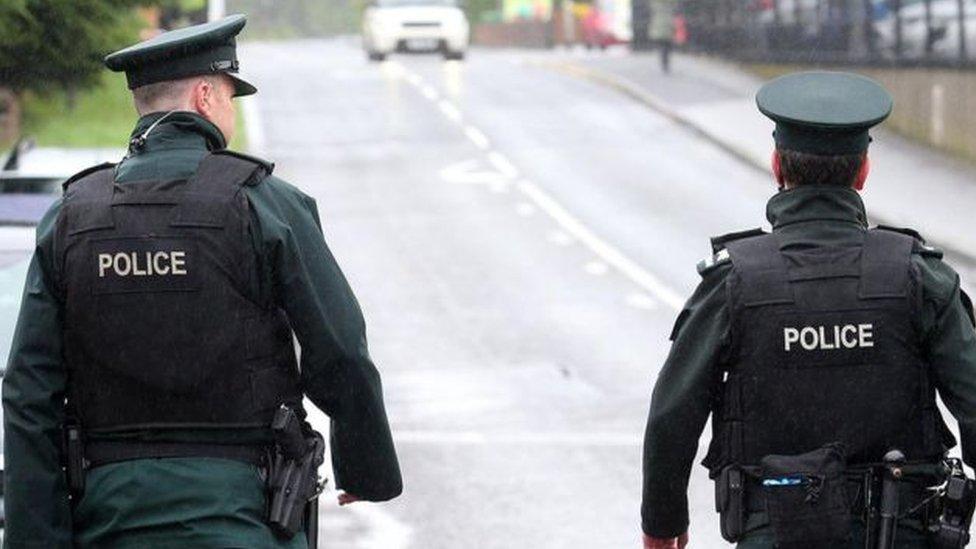Brexit: UK lost 'significant' access to EU policing data under deal, report warns
- Published
- comments

Britain has lost "significant" access to EU policing data under the Brexit deal negotiated at the end of last year, a House of Lords report has said.
It also concluded that post-Brexit law enforcement arrangements are "complex" and "untested".
And peers warned it would take much longer for vital data to be passed to frontline police officers.
A government spokesman said the UK "continues to be one of the safest countries in the world".
When the UK left the EU it lost automatic access to EU databases with information on criminal records, fingerprints and wanted persons.
Under a deal struck between the two sides at the end of last year, the UK secured access to certain sets of information, for example air passenger data.
The Lords EU Security and Justice Sub-Committee has been examining the deal reached.
It found that the agreement "avoids a cliff-edge departure" by ensuring data, such as DNA, fingerprints and criminal records could still be shared.
Committee chairman Lord Ricketts, a former national security adviser, said the government had "succeeded in avoiding an abrupt end to years of effective UK-EU joint working, which would have put the safety of citizens in the UK and across the EU at greater risk."
'Considerable caution'
However he added that there were "grounds for considerable caution".
He said new arrangements were "complex and untested... and their effectiveness will depend crucially on how they are implemented at the operational level".
Specifically the report draws attention to the UK's loss of access to the EU's criminal database - the Schengen Information System (SIS II).
Leaving the system meant the UK lost access to 40,000 alerts about investigations in other European countries.
The committee said this represented a "most significant gap" for law enforcement and that the SIS II replacement meant information was available in "a matter of hours, not seconds".
It also warned that data sharing between the sides meant the EU would hold the UK to "higher standards" on data protection and could suspend any agreement "if the UK chooses not to stay aligned with EU data protection rules in the future".
Responding to the report, Home Office Minister Kevin Foster said: "The UK agreed a comprehensive security agreement with the EU that ensures the UK continues to be one of the safest countries in the world.
"We continue to work closely with domestic and EU partners to monitor the new arrangements and have excellent cooperation with EU member states on a wide range of law enforcement and criminal justice issues."
Related topics
- Published13 January 2021

- Published28 December 2020
